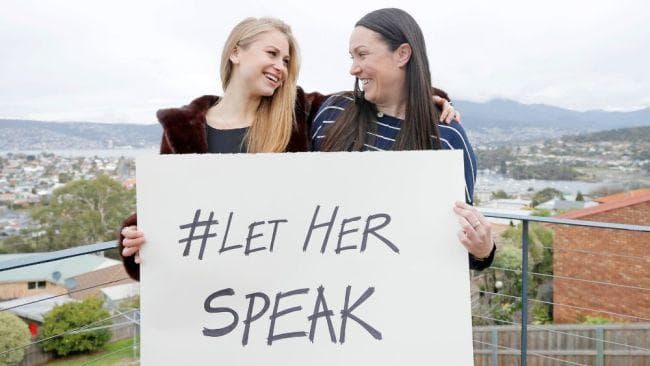With Christmas fast-approaching, knock-out deals are everywhere, and one kind of deal has become more popular than ever: bargain flights. Multiple companies are selling both domestic and international flights at record-low prices, especially around Christmas. It almost sounds too good to be true, so the question is, what’s the catch?
There are few important things to take into account when booking these flights. While conditions may vary across airlines, these bargain flights generally have a few things in common:
- One-way flights
While relatively easy to determine once you do a little research, it is useful to note that airlines will commonly advertise one-way flight prices as they obviously appear cheaper. While return flights will still be cheaper than normal during these sales, they are generally double the amount advertised, so don’t be fooled!
- No check-in baggage
A common ‘catch’ with bargain flights is the exclusion of checked baggage. For a short domestic trip, this may not be an issue as most flights still allow the 7kg carry-on luggage. However, for longer international trips, 7kg carry-on and liquid restrictions may significantly hinder your holiday plans. All airlines allow you to purchase checked baggage but this may set you back anywhere between $10-$50 depending on the baggage weight, greatly increasing that $9 flight. Pre-purchasing checked baggage however, is always recommended over purchasing at the airport as airlines tend to charge exorbitant amounts for excess baggage on the day.
- No name changes
Bargain flight deals usually don’t last long and this urgency may encourage you to purchase a few tickets just to have them before deciding later who the passengers will actually be. The ‘catch’ here is that airlines will charge you for any changes you make to passenger details. When you are booking flights, you are generally required to enter all passenger details and future changes can incur costs of around $70.
- No seat selections
When you choose to purchase a bargain flight, you will rarely be given a choice in seating. This means that a group booking may have split seating on the flight. If you are determined to be seated together, airlines allow seat selections, but at a fee ranging from $5-$50.
- No full refunds/cancellations
Finally, bargain flights rarely offer full discounts. Most will charge an admin fee of around $50 to process the refund. For a $9 flight, this would be counterintuitive and it may be better off just to not catch the flight.
For a short fuss-free trip, bargain flights are a great deal and can save you lots of money that could be spent elsewhere on your trip. Any extra requests and changes however, can incur significant costs that mean your bargain flight is a bargain no longer. Thus, the bottom line is to always read the terms and conditions for each airline before booking, and be flexible about your flight experience!
Make sure you are aware of the terms and conditions, as well as your rights when purchasing a bargain flight. Contact Freedman & Gopalan Solicitors on 02 8917 8700 if you wish to know more.
Since the Grenfell Tower fire in 2017, causing 72 deaths and over 70 injuries, the safety of the material cladding buildings around the world has been brought into the spotlight.
Recently, the NSW Government has compiled a list of 444 buildings across NSW that are potentially clad in flammable material. However the Parliament has announced that it will not make this list public after having deemed it a security risk, citing arson and terrorism as its main concerns. To protect the secrecy of the list, the government has lodged a claim of privilege, arguing that the public release could also breach confidentiality, mislead the public and harm the interests of property owners.
The NSW Fire Brigade Employees' Union has criticised the decision to keep the list secret, saying that people who live and work in those buildings should know about the potential risk. In May in year it was revealed that flammable cladding was also used in NSW hospitals, posing a major fire threat to the public.
The Construction, Forestry, Maritime, Mining and Energy Union (CFMMEU) has deemed this part of a wider, Australia-wide 'construction crisis', and has demanded federal intervention. The union argues that state governments lack the skills and infrastructure to properly deal with this issue, and this failure has cost Australia $10 billion in the past decade alone.
The CFMMEU Report estimates that the cost of rectifying apartment defects, including flammable cladding, could be over $6 billion. It is unclear who will bear the cost and the blame for the defects. There is culpability extends from those responsible for proposing flammable cladding, to local councils and governments for approving its use, and building contractors for fitting buildings with these materials.
This is a live issue, as the Union has appealed the privilege of the cladding list. We hope that the government takes some time to ensure the building standards imposed in NSW are adequate and able to protect the community.
Within our society, we rely on the police to maintain public order and safety, to enforce the law and to prevent, detect and investigate criminal activities. We trust the police to carry out their role in accordance with the law and within the limits of their power.
While it is the role of the police to protect the public, it is the public’s role to keep the police accountable. Whether you are dealing with a noise complaint, or being asked for identification, it is imperative that you know your basic rights when dealing with the police.
What to do when police ask for identification?
If you are over the age of 18, you are required to provide the police with your name and address.
If you are under 18, you only need to provide the police with your age. You have the right to ask for a parent or lawyer to be present, in the process of questioning.
It is important to know that the police cannot ‘arbitrarily’ question people. They must have reasonable suspicion of your engagement in something unlawful before they start questioning.
What to do when police ask to search your car?
Where a police officer pulls you over with reasonable suspicion, for example, to inspect the smoke coming out of the back of your car, they can then use that as a reason to search your car. Subsequent to the search, the police can seize any unlawfully held weapons they find in the search and also seize evidence of other offences found.
Do you have to hand over your phone to the police?
Police do not have an automatic right to search your personal property, such as your mobile phone.
Your property can only be searched if:
- You consent to the search
- The police have a search warrant, or
- They are permitted to conduct the search under a law.
The police have the power to stop, detain and search you without a warrant if they reasonably suspect that you are carrying something such as a weapon, illegal drugs or graffiti instruments.
Can I film the police?
You do have the legal right to film police, if it is in a public place, and as long as it does not interfere with the performance of the police officer’s duties.
The police do have the right to stop you from filming if you are obstructing them from carrying out their duties.
If you have been improperly searched or questioned by the police, please do not hesitate to contact the team at Freedman & Gopalan Solicitors on 02 8999 9837, and we will be happy to assist you and answer any queries you may have.
Christmas is a happy time where families and friends can get together and enjoy each other’s company whilst sharing hearty meals and exchanging gifts. However, for families where parents have separated, Christmas can be a stressful time for each other and also for the child involved.
You will want the child to spend with Christmas with you, and in most scenarios, the other parent will also expect the same.
After a family separation, most will negotiate parenting arrangements in order to consider the day to day activities of the child. However, many forget to specifically consider upcoming celebrations relating to Christmas Day and the actual day itself. We would highly recommend for you to start discussions early with your ex-partner in order for you to be at ease before all the busyness that comes with the Christmas period.
We understand that face to face discussions may not be possible in your situation, so perhaps you could try and use email or text to communicate your position. Once an arrangement has been discussed, we would highly recommend that it is written down and both parties have a copy in order to prevent any unnecessary miscommunication, distress and conflict.
If, however you are unable to come to an agreeable arrangement, please do not hesitate to contact the team at Freedman & Gopalan Solicitors on 02 8917 8700, and we’ll be happy to assist you and answer any queries or concerns you may have.
The ‘traditional’ or ‘nuclear’ family unit, comprising of mother, father and biological children, is no longer the only way we think and define families.
Rather, the concept of family has developed to take on various forms. Single parents, de-facto couples, same-sex relationships, blended families and adoptive families are among a few of the many familial structures present in our society today.
With an acceptance of a more dynamic family unit, the law has been forced to adapt and respond to accommodate for these changes.
In July of 2019, the High Court of Australia was forced to deal with the question, can a sperm donor be considered as a legal parent of a child?
This question was presented to the High Court after sperm donor, Robert Masson, applied to the Family Court in an attempt to prevent his friend, and the mother of the child, Susan Parson, from relocating to New Zealand with her female partner. A move that would have effectively separated him from his biological daughter.
Mr Masson, who was listed as the father on the girl’s birth certificate, told the court that he agreed to donate his sperm to his friend, on the agreement that the would be involved in the child’s life.
The child was conceived in 2006 and in the intervening years, the child refers to Mr Masson as “daddy”. Since her birth twelve years ago, Mr Masson has also maintained a close relationship with her, introducing her to his extended family, holidaying with her and volunteering at her school canteen.
Upon application to the Family Court, Justice Margaret Cleary wrote that the law recognised parents in different ways. In recognising Mr Masson as a legal parent, Her Honour prohibited Susan and her partner from relocating to New Zealand, ordering that the child is to spend regular time with Robert.
The girl's mother and her wife appealed the decision and won, arguing that Mr Masson was not the legal father, citing NSW Statute in evidence of their proposition. Under NSW state law, a sperm donor is presumed not to be the father of any child conceived using his sperm unless he is the husband or de facto partner of the mother. As a consequence, Mr Masson was presumed not to be the legal parent.
Mr Masson then filed an appeal to the High Court, relying on Commonwealth laws to support his claim of legal parentage. In ruling that Mr Masson was, in fact, a parent of the child, the High Court considered the clash between State and Federal laws. The majority held that Masson had clearly demonstrated, in addition to being a sperm donor, that he had an ongoing involvement and relationship with the child, meeting the definition of “parent” under federal laws. This decision reaffirmed the earlier ruling that the mother and her wife remain in Australia and are to consult Mr Masson on major parenting decisions.
In making this ruling, the High Court has expanded the definition of a “legal parent” to include a sperm donor. However, whilst the effects of this expansion may appear to be far reaching, the implications of this decision is limited.
Only where a sperm donor can demonstrate that they meet the definition of a parent under the federal act, and where the biological mother did not have a spouse at the time of conception, will the Court agree that the donor is a legal parent. Anonymous sperm donors who have not seen or had a relationship with their biological child will not be considered a legal parent in the eyes of the law.
Nonetheless, the complexity of this case highlights several practical issues for both prospective mothers and sperm donors.
Where a sperm donor does not wish to have any parental responsibility over a child, they may now find themselves exposed to the full gamut of responsibility, including child support and inheritance. Likewise, single mothers who do not wish to share parental responsibility with a sperm donor may be faced with parentage orders.
It is therefore in the best interests of all parties involved that a Sperm Donor Agreement be drafted and executed prior to entering into any donor-acceptance arrangements. Although it may not be legally binding, by clearly setting out their intentions in the agreement, both parties will be protected.
If you wish to discuss your options, please do not hesitate in contacting Freedman and Gopalan Solicitors.
Under the current Tasmanian law, laws prohibit survivors from being named in the media, regardless of whether they give their consent. In 2012, a Tasmanian newspaper breached this law and received a $20,000 fine, even though the assault survivor had given full consent to the publication. These ‘sexual abuse gag laws’ take away the agency of survivors and their ability to heal in their chosen way and have led to the powerful movement in Tasmania known as #LetHerSpeak launched in November 2018.
#LetHerSpeak campaigners argue that survivors have the right to identify themselves in the media and to share their own story, especially given the perpetrators frequently share their stories and names. In August 2019, Grace Tame won a court order exempting her from the gag laws and allowing her to speak out using her real identity. However, this court application was lengthy and cost approximately $10,000 in legal fees.
As a result of the campaign, Tasmanian Attorney-General Elisa Archer has revealed plans to amend the law, specifically the Evidence Act 2001 (Tas), to enable publication of the survivor’s name if the following conditions are met:
- The victim has authorised the publication of their name in writing,
- They are over 18 years old at the time of publication,
- They have the capacity to consent, and,
- They were not coerced into consent.
The law would continue to have safeguards and protections for the survivors who do not wish to be identified, and it would still be a serious offence to breach these laws. The changes will be released for consultation before the end of 2019, so they can be introduced to Parliament in 2020.
The proposed changes would bring Tasmania into line with other states in Australia. In NSW, sexual assault survivors may be named in the media if journalists have the consent of the victim, and the victim is over 14 years old. The story is similar in Queensland, South Australia and Western Australia, where the victim must be 18 years old, and in the ACT and Victoria where there is no age requirement to consent to publication. If Tasmania goes ahead with the changes, the Northern Territory will be the only jurisdiction to retain these archaic gag laws.
If you or anyone you know is affected by sexual assault, please call 1800 RESPECT (1800 737 732) or contact Lifeline on 11 13 14. If you would like to discuss your legal options, contact our offices on 8917 8700 or via the enquiry form on this website.
Pets are an integral part of a family, and increasingly have become a major issue subsequent to a family separation. Not only can a family separation cause emotional stress for either partner, it also affects your children along with the wellbeing of your pet.
Whilst there is no current legislation in Australia that explicitly refers to the living arrangements of pets following a separation, they are, however, considered as part of the general personal property pool and in the same manner as furniture, clothing and other assets.
If you have issues with the custody of your pet like in the scenario where your ex-partner has taken sole custody of your pet without notifying you, you will need to make an application to the court in order to recover your pet.
There are also other things you need to consider: -
- The best thing to do in the first instance is to sit down and attempt to negotiate the living arrangements of the family pets together. Consider who the pet has predominantly bonded with and its relationship to each party.
- We understand that a family pet also comes with many financial responsibilities, including vet bills, grooming expenses and day to day feeding expenses. For this reason, we would highly recommend for Consent Orders or a Binding Financial Agreement to be entered into between the parties to ensure you would have a legally enforceable agreement to rely upon should any issues in the future arise. This would include considerations in relation to: -
- Who the pet would reside with on a day to day basis;
- With whom the pet shall be registered; and
- Who would be responsible for each financial expense.
If you have exhausted all your efforts with your ex-partner and would like to seek further information or assistance in relation to the custody of your pet, please do not hesitate to contact our helpful team at Freedman & Gopalan Solicitors, and we will be happy to assist you in any manner!
“We need leaders not in love with money but in love with justice. Not in love with publicity but in love with humanity”.
These are the powerful words of protesters in downtown Beiruit, Lebanon.
Over the course of a week, tens of thousands of people have flooded the streets of Lebanon in protest against political corruption and economic woes.
These protests have grown steadily across the country, with tensions reaching an ultimate high on Thursday.
In an attempt to prevent the economic collapse of Lebanon, the government proposed to enforce a $6 per month tax levy on the messaging application, WhatsApp. As this is the main method of communication for the majority of Lebanese people, the imposition of a tax is understandably unwelcome.
Following the announcement of new tax increases, protesters marched in Beirut, Tripoli and other major cities, waving the national flag and demanding for “the fall of the regime”. They have blocked main roads and threatened to topple the country’s fragile coalition government.
Despite the governments swift abandonment of the tax on communication methods, and the resignation of the coalition party, the demonstrations have quickly grown into the largest the country has seen in 14 years. The sheer size and duration of these protests is demonstrative of a country uniting as one in the pursuit of a revolution.
The main reason for public outrage stems from a continued rate of poverty across the country. With more than a quarter of the Lebanese population living below the poverty line, rampant corruption has widened the gap between the privileged elite and the rest of the country. In her dissent against Lebanese officials, Protestor, Hanan Takkouche, stated that they are, ‘preventing badly needed reforms so that they can line the pockets of the ruling class’. In the heartbreaking words of another protestor, Mr Hussein el Hek states, “I can’t afford my daily life, I can’t afford to be in love, or marry and it is because the politicians are stealing shamelessly from their people”.
One look at the economic state of Lebanon and it is clear that the people are right to question their government’s ability to shore up the government’s finances. Lebanon’s economy has neared a precipice with a national debt of 150% of GDP and rising, whilst their central bank reserves have plunged 30% in the past year and the local currency continues to slip against the dollar. When interviewed by the Guardian, an unidentified woman, revealed that she cannot afford to send her son to school, that she does not have electricity or insurance and that the garbage remains on her street all because, “our politicians have no mercy, they steal our salaries and livelihood”.
A nationwide general strike has been called for Monday to demand an overhaul of the government despite the resignation of government ministers on Sunday. This means that banks, shops and schools will all be closed, while travel may be restricted as the main streets are already blocked.
Our hearts are with the people of Lebanon and their families all over the world during this difficult time.
Unfair dismissal is when an employee is dismissed from their job by their employer in one of the following ways;
- Harsh – dismissing the employee was too severe a consequence for what they did;
- Unjust – the dismissal was based on act which is not factually correct; or
- Unreasonable manner – An average/ reasonable person would consider the dismissal as making no sense.
If the employee worked for a small business, then the employee may consider an employee has been unfairly dismissed if the dismissal was not in accordance with the Small Business Fair Dismissal Code.
An employee in NSW must make an application with the Fair-Trade Work Commission for Unfair dismissal within twenty-one days of the dismissal of the employee. The employee could also along with the application enclose letters and emails supporting his application.
Pursuant to an application being lodged, it will be forwarded on to the employer. The employer within seven days of receipt of the application must respond by filing their comments in response.
Within few weeks of the response being filed, a Conciliation Conference by telephone will be held by the Fair Work Commission to assist the parties to negotiate a settlement. The majority of Unfair Dismissal claims settle at a Conciliation Conference.
If a case does not settle through a Conciliation Conference, then a hearing date will be listed and both parties will have to serve documentation/ statements supporting their contention.
At the hearing, the respective legal representatives for the employer and employee present their arguments and supporting evidence to the Commissioner.
The employers when they receive a claim, should firstly consider whether any of the threshold criteria for an Unfair Dismissal claim have been breached. The list is not comprehensive, and we highly suggest that you seek legal advice prior to responding to an Unfair Dismissal claim as there may be legal contentions that are not obvious on initial assessment of the Application.
If you are interested in reading more about Unfair Dismissal laws, click here to read more.
If you would like to enquire about any of the issues raised above, please do not hesitate to contact Freedman and Gopalan by calling 8917 8700 or by filling out the enquiry box.










